This is the sixth in a series of fifteen planned reviews of the films of John Flynn. During his 33-year career, Flynn directed everything from intimate character studies of volatile, potentially violent men to dark revenge films to early Steven Seagal vehicles and everything in between. Utilizing a spare style of filming that subscribed to the idea that the audience should not be aware of the director, Flynn placed an emphasis on strong performances and cleanly shot and edited action sequences that showcased impressive stunt work. His films show how a director with a clear vision can elevate even the most generic potboiler into a sturdy genre film worthy of rediscovery, yet most film buffs do not know his name.
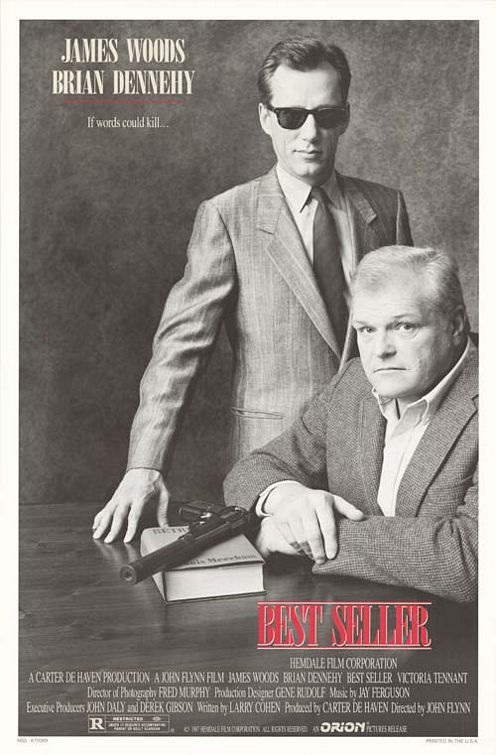
There are occasions when I watch a film for a second or third time (or fourth, fifth, sixth, you get the idea) and then wonder what I was thinking when I initially reviewed that film. Usually, when this happens, I agree overall with my review, but will find one detail that is misguided, or even flat-out wrong. Such is the case with BEST SELLER.
I am a fiend for the films of Larry Cohen. I’ve made it my life’s work to watch every film he had a hand in (whether writing, directing, producing, or all three). Cohen is the screenwriter of BEST SELLER. Just over two years ago, I wrote a very positive review of the film for my blog, complaining only about the generic score and the casting of Brian Dennehy as a cop turned crime writer. My thoughts on Dennehy were that he was well cast as a cop (one of dozens in his career), but I didn’t buy the idea of him as an author, complaining that, “the second he is forced to studiously take notes with a thoughtful look on his face, the movie lapses into unintentional humor.”
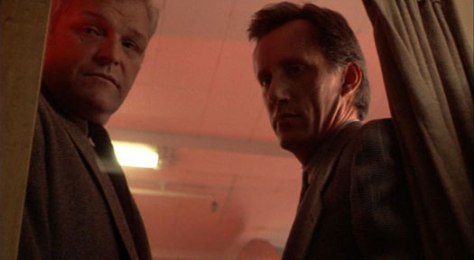
Despite having watched BEST SELLER a good half dozen times by now, I watched it again recently so that it was fresh in my mind while writing this piece. The first thing that struck me on this viewing was how incorrect I was in my initial assessment of Dennehy’s performance. Perhaps it was how much his steady straight-man role was overshadowed by James Woods’ flashy performance as a charismatic and sleazy hitman, or maybe it was just straight-up snobbery on my part. Maybe I was so used to seeing Dennehy play a series of blue-collar cops, crooks, and gruff father figures, I just could not possibly imagine him taking on the role of a thoughtful, introspective writer. Whatever the reason, I am glad that I have the chance to write another piece on the film so that I can rectify the mistake I made the first time around.
But I suppose I should back up and give you a little context regarding the film before I offer up my mea culpa to Mr. Dennehy.
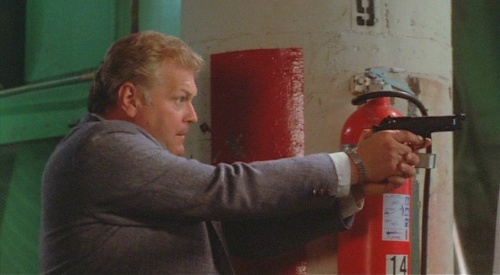
Arguably the best film made from a Cohen script that he did not direct, BEST SELLER covers well-worn territory about the parallels between cops and criminals. Cohen and Flynn give this clichéd theme a freshening up by openly acknowledging the tropes of this particular story and by having their criminal trying to rewrite the story he is in to make himself the hero. It should not work. It is an idea that is so ridiculous when you say it out loud or put it down on paper that most filmmakers would shy away from it and critics and audiences would scoff. But by 1987, Flynn had shown critical and commercial success by going for tonally risky projects, and he plunges into Cohen’s absurd tale headfirst and brings along a game cast.
The film starts in the early ‘70s. After barely surviving a deadly heist on a police evidence impound pulled off by three men wearing Richard Nixon masks, police officer Dennis Meechum (Dennehy) writes a best-selling book about the crime. The film then jumps ahead roughly fifteen years. Meechum has had a successful side career as an author of crime novels (apparently, the extra income allowed for some amazing cosmetic surgery—he does not appear to have aged a day since the heist) while working his way up the L.A. police ladder to become a detective. But recent years have been tough on Meechum as his wife died of cancer after a prolonged period of suffering. The medical bills ate away his savings and he has been unable to write since becoming a widower. With his publisher breathing down his neck because of several missed deadlines, a teenage daughter (Allison Balson) to support, and a growing disenchantment with the life of a policeman, Meechum is in a tough spot. That is when Cleve (Woods) walks into his life.
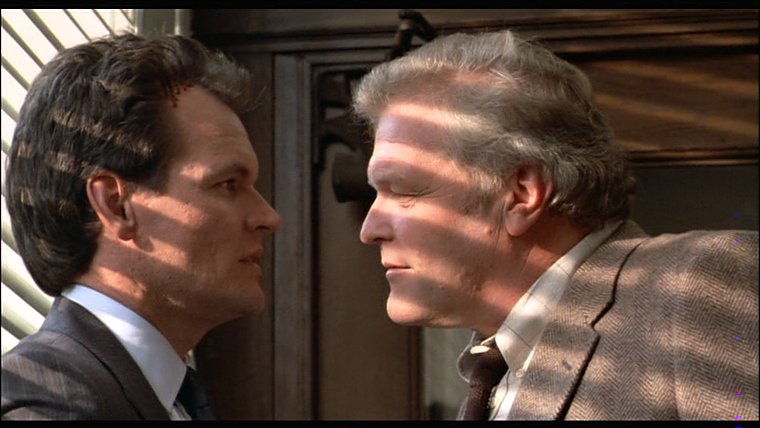
Cleve is open about his line of work: he’s a hitman. Not only does he own up to that when he meets Meechum, he is proud of it. He claims to be one of the best in his business and wants Meechum to tell his story. Cleve claims to have killed well over a dozen people in service of Kappa International—a massive corporation headed by glad-handing billionaire David Madlock (Paul Shenar). Of even more interest to Meechum is Cleve’s claim that the original seed investment for the corporation came from the police evidence heist that opens the film.
Meechum is understandably skeptical. If what Cleve is telling him is true, why would he admit it to a cop? Why would a man whose career relies on secrecy want his story told to the public? Cleve’s answer is simply that he craved the respect of Madlock and wanted to be seen as an equal in the corporation. Instead, he was treated like hired help and shown the door when he asked for anything more than he was given. The book is to be his revenge on Madlock and his proof that he was just as important—if not more so—to the founding and profitability of Kappa International.
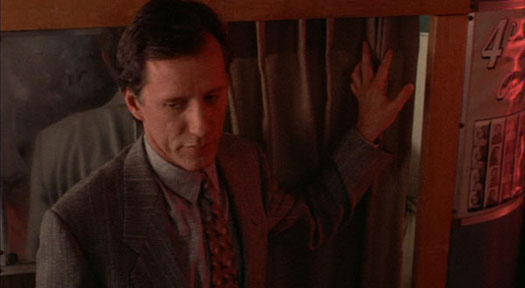
The film embraces the cliché of having Meechum not immediately arrest Cleve (because then there would be no movie). Instead, he allows Cleve to drag him all over the country, offering up evidence that will back up his claim of responsibility for each murder. Slowly, Cleve convinces Meechum that his claims may be true. Various lawyers and thugs for Kappa International also try to intimidate Meechum with threats of lawsuits and violence, further making Meechum believe there is something to the tall tales that Cleve is spinning.
But while Meechum comes to believe at least most of what Cleve is telling him, he can never trust him. And that tension is what drives the movie. While Flynn and Cohen do make the case that cops and criminals occupy the same world of shady ethics, they admirably never go the sappy route of having their two leads become friends. There is undoubtedly respect between Meechum and Cleve. Both men are professionals who excel at their jobs, but beyond those similarities, they both suffer from a lack of respect among people they see as their peers.
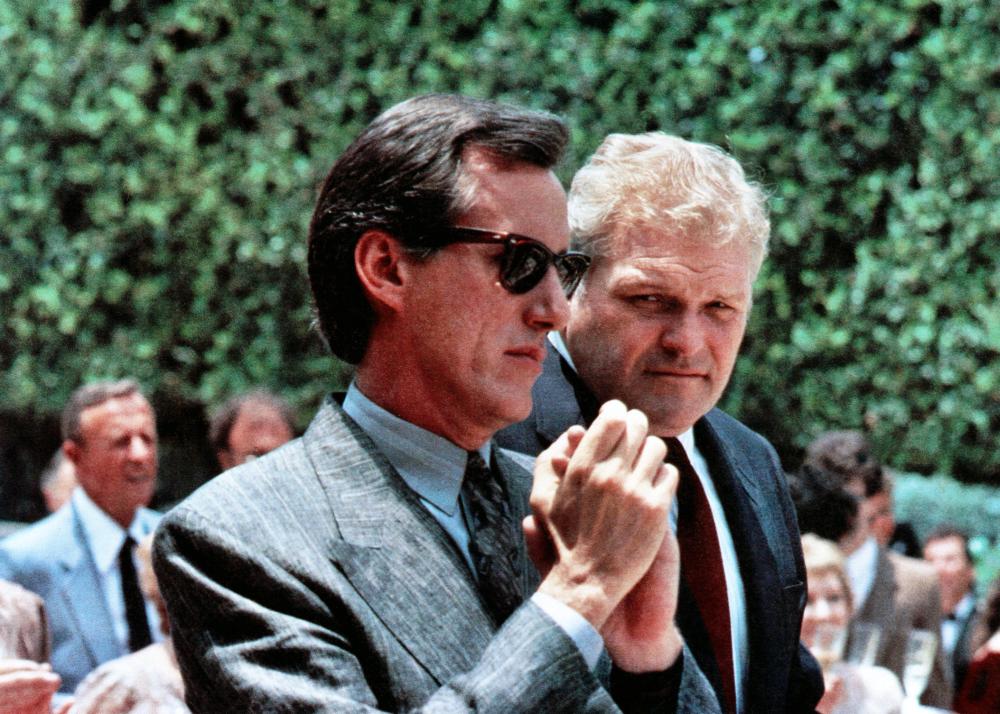
While Cleve states time and again how important he was to the success of Kappa International and how his value went unrecognized, Meechum is largely quiet about the shoddy way his publisher treats him. But the film contains two scenes that show how expendable Meechum is to his publisher. The first scene is a business lunch where representatives of his publisher scold a clearly agitated Meechum. Despite his agent brushing off the threats by assuring him that he will not be sued for breach of contract, he does not look sure. The scene ends with a cutting remark by an editor (Victoria Tennant) in response to Meechum’s question about a possible film adaptation of one of his books: “Don’t expect Hollywood to bail you out.” This exchange is made all the more toxic when it is learned later that Meechum and the editor may have had some kind of relationship. Not only does Meechum feels like an interloper in the publishing world (he mentions at one point early on in the film that he is a “police officer first and a writer second”), but one of his first attempts at reaching out for a relationship following his wife’s death is with a woman who does not seem to respect him professionally. It may not be a lot, but the extra wrinkle of looking at Meechum and Cleve as hard workers who do not get the respect they deserve from the people they helped make successful is an important added layer to the already played-out “cops and criminals have so much in common” idea.
It is in the scenes of Meechum having to deal with the author side of his life that Dennehy excels. What I used to read in his performance as a lack of believability now comes off as a man who lacks confidence in himself as a writer. Not only is he dealing with writer’s block, his publisher has gone hostile toward him, furthering the pressure. Dennehy never oversells the discomfort he feels in these moments that he lets the stress get to him. Meechum is a man shown constantly in control of his emotions in his work as a cop and father, so it makes sense that he would be loathe to let on when something gets under his skin like writer’s block or threats from a publisher. Dennehy’s work in those moments of discomfort is subtle and smart — not, as I initially reasoned, unbelievable.
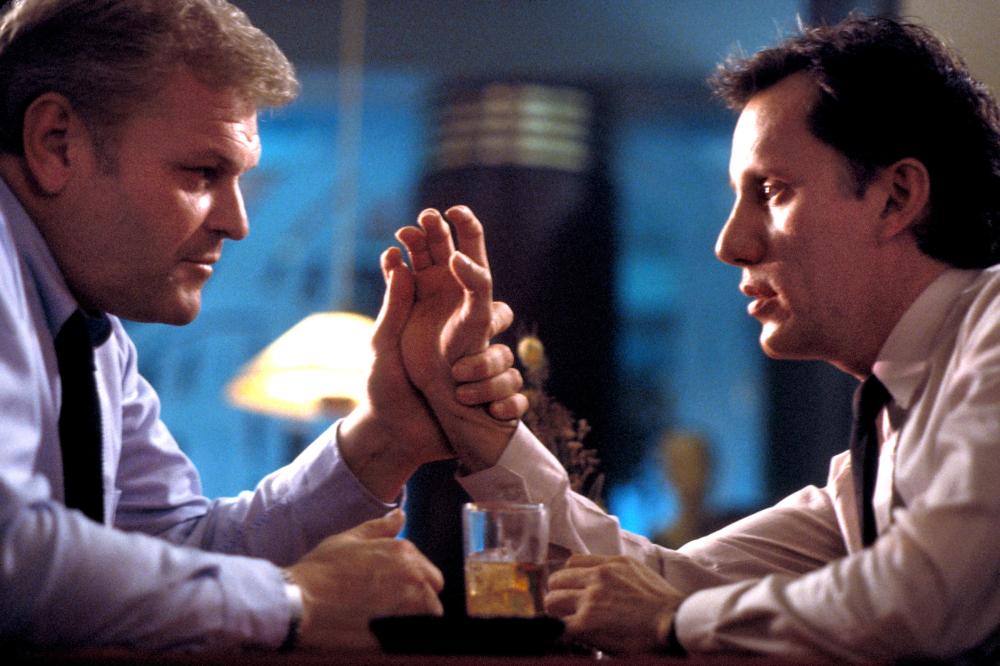
But you do not cast a man as physically imposing as Dennehy (while age has done him no favors, in BEST SELLER, he still looks like he could wrestle a bear and win) and not allow him the chance to simmer with anger and occasionally explode. In that regard, Woods is the perfect actor to play Cleve (although I would love to see Michael Moriarty’s take on the role). Playing Cleve with his trademark intensity and smarmy charm, Woods is a motor mouth, constantly intruding in the personal space of the other actors. Cleve is already the type of person to say and do things to get a rise out of people, when you add Woods’ interpretation of him as a particularly annoying Chihuahua whose bite is just as bad as his bark, it does not take long for Meechum’s annoyance and anger to get out of his control. When he does blow up, Dennehy goes for it, flinging furniture aside, throwing punches with fury, and pistol-whipping killers with relish.
Interestingly, considering the story is typically outlandish, pulpy Larry Cohen material, Flynn largely brings a grounded approach to the material. The film never approaches realism, but Flynn seems more interested with hitting the emotional beats and exploring the impossibility of actually having a connection with a killer. The details behind how plot twists happen remain fuzzy while Flynn is showing how each detour and roadblock Meechum and Cleve run into twists their relationship into a more intimate and unhealthy symbiosis. Instead of Cleve becoming a killer with a heart of gold as a result of the central relationship, Meechum finds himself betraying his principles and turning his back on the laws he swore to uphold just so he can write a book. By the time he and Cleve are gunning down homicidal goons together, he is no longer a “police officer first and a writer second.” He is something else, a third category where the lines of those two occupations have been blurred with that of a near-vigilante.
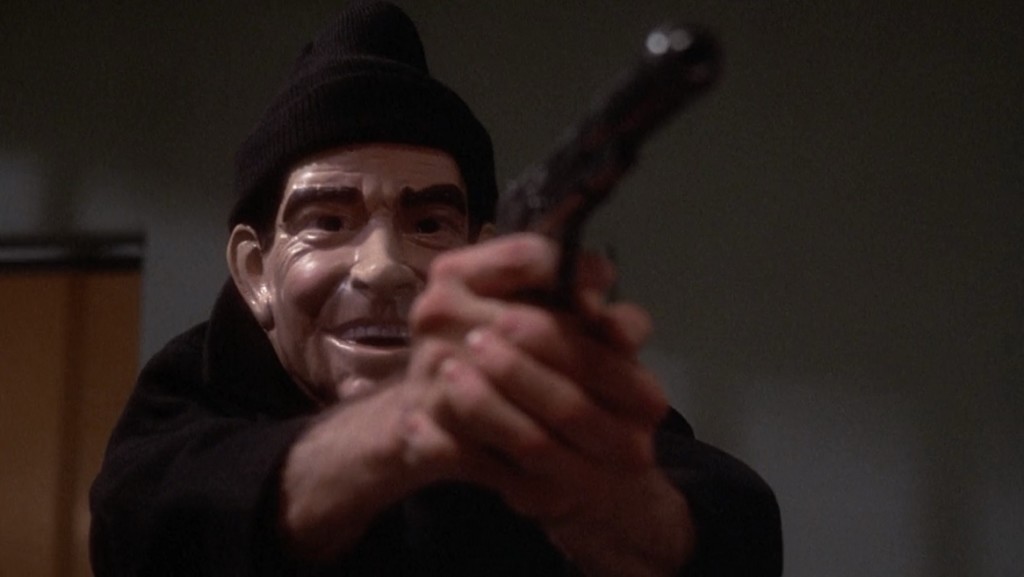
If I’ve made BEST SELLER sound overly pompous and only concerned with characters exploring the darker side of their souls, rest assured, it is still an absurd suspense film with gunfights, barroom brawls, and intricate conspiracies. Late in the film, as though Flynn and Cohen are aware of how over-the-top the plot has become, they literally have Cleve tell Meechum (and the audience), “Anybody can kill anybody. Even the president, remember?” While the film is full of humor—usually provided in a sleazy, but funny remark by Cleve, using presidential assassinations to provide context for the film’s loopy plot is the closest BEST SELLER comes to going for tongue-in-cheek comedy.
My opinion may change by the time I am done watching all of Flynn’s films, but BEST SELLER is his best-directed film. That is not to confuse it as his best movie. That honor still falls to ROLLING THUNDER. But the number of shifting tones, character beats, and plot twists in the script are seamlessly blended into a satisfying thriller that is both emotionally raw and slickly put together. In many ways, it feels like the best Michael Mann film that Mann did not make. And I do not mean that to sound like Flynn is simply knocking off another great director. Even with a script written by a director with his own very distinctive style, Flynn is able to make the material his own. That is what a great director does and it is Flynn’s guiding hand that makes BEST SELLER a vital film nearly thirty years after its release.
— MATT WEDGE.
Catch up on previous episodes of our John Flynn retrospective!
THE OUTFIT (1973)
ROLLING THUNDER (1977)
LOOKING FOR UNDERGROUND CULT MOVIES, DVDs, LIMITED VHS & OTHER COOL STUFF?
CHECK OUT THE DAILY GRINDHOUSE/CULT MOVIE MANIA STORE!
Tags: Brian Dennehy, James Woods, john flynn, Larry Cohen, Matt Wedge, Retrospectives, Series

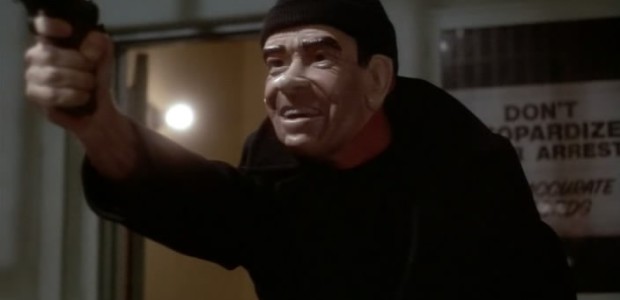
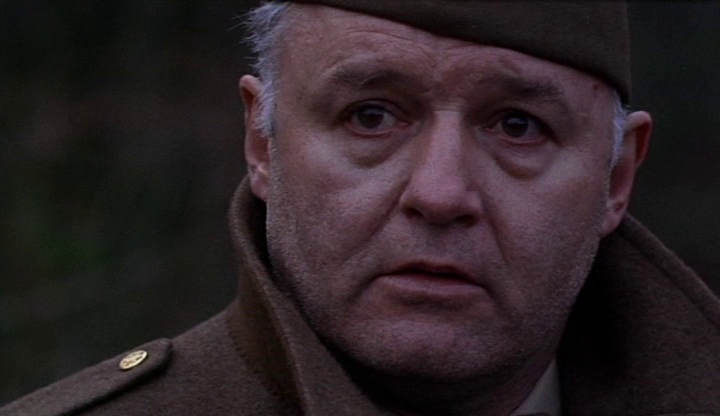
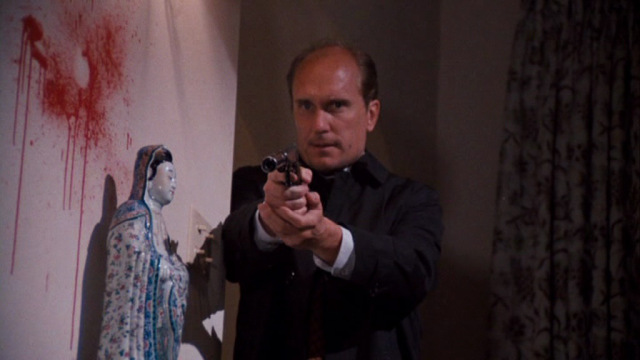
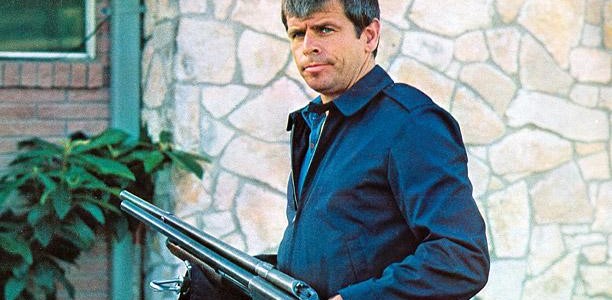
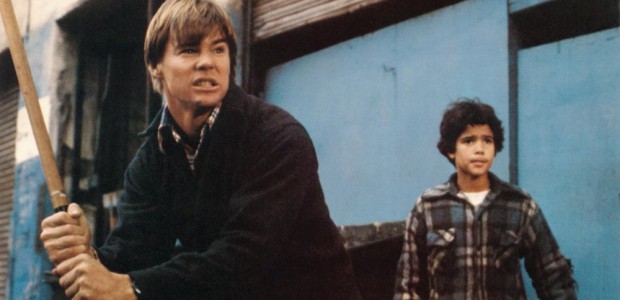
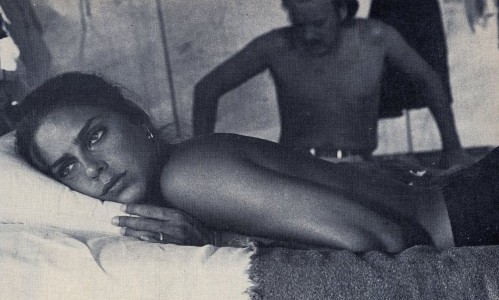
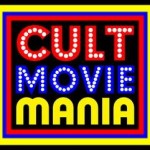
No Comments